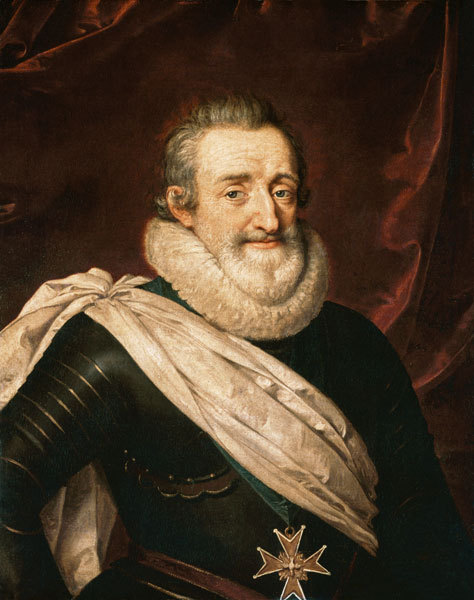skip to main |
skip to sidebar
From Vincent J. Pitts, Henri IV of France: His Reign and Age:
On a cloudless day in May 1610, a solitary figure stepped out of the shadows on a narrow Paris street and murdered his king with a carving knife. The assassin later insisted that he had acted to prevent his sovereign, Henri IV, from “making war on the pope,” a justification offering more than a little unintended irony. Henri IV’s success in ending decades of debilitating civil war between Catholics and Calvinists underlay the achievements of his reign. His death at the hands of a religious fanatic made him the last prominent victim in the cycle of sectarian violence he sought to close.
The French have never forgotten the monarch so savagely slain that day. Henri’s image has undergone many transformations over the intervening centuries as generations of polemicists and historians have fashioned an Henri to their own liking. Seventeenth-century chroniclers saw him as a pious and dutiful monarch; eighteenth-century authors portrayed a skeptical, tolerant, enlightened despot; nineteenth- and early twentieth-century writers, royalist and republican alike, found use for an earthy, jovial, crowned peasant, a son of the southwest, whose personal traits were those of a French “everyman”. In all these incarnations, however, Henri remained the king who had put an end to decades of civil strife, restored his kingdom to prosperity, and reclaimed France’s place as a leading power in Europe, able and willing to challenge Spain for predominance on the continent. (Read more.)
Share


















No comments:
Post a Comment